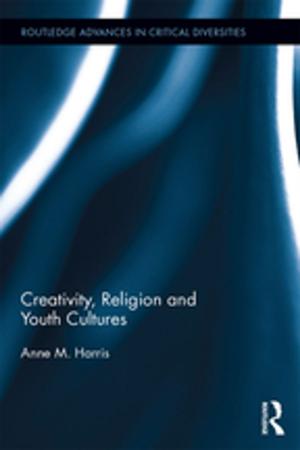Genetics and Global Public Health
Sickle Cell and Thalassaemia
Nonfiction, Health & Well Being, Medical, Patient Care, Health Care Delivery, Allied Health Services| Author: | ISBN: | 9781317977414 | |
| Publisher: | Taylor and Francis | Publication: | June 11, 2014 |
| Imprint: | Routledge | Language: | English |
| Author: | |
| ISBN: | 9781317977414 |
| Publisher: | Taylor and Francis |
| Publication: | June 11, 2014 |
| Imprint: | Routledge |
| Language: | English |
Sickle cell and thalassaemia are among the world’s most common genetic conditions. They are especially common in Africa, Brazil, the Caribbean, the Middle East and Asia. They affect all ethnic groups but they particularly impact on minority ethnic groups in North America, Europe and Australasia. Much research has focused on clinical, laboratory and genetic studies of these conditions. Through a wide-ranging selection of readings based on social scientific research into sickle cell and thalassaemia, this book seeks to redress this imbalance. This is important as, through an examination of the different social, economic and cultural contexts of the lives of people living with sickle cell or thalassaemia, the contributors demonstrate that people are more than the sum of their genes and that their life experiences are rarely derived solely from the clinical severity of their condition but depend on the social context of their lives.
Genetics and Global Public Health presents a new concluding chapter which highlights the critical nature of social science research for sickle cell and thalassaemia communities, providing key insights into the social contexts of human behaviour and analysing how societal arrangements could change to assist people living with either condition. It will be of great interest to postgraduate and research students as well as professionals working in the field of public health.
This book was originally published as a special issue of the journal Ethnicity and Health.
Sickle cell and thalassaemia are among the world’s most common genetic conditions. They are especially common in Africa, Brazil, the Caribbean, the Middle East and Asia. They affect all ethnic groups but they particularly impact on minority ethnic groups in North America, Europe and Australasia. Much research has focused on clinical, laboratory and genetic studies of these conditions. Through a wide-ranging selection of readings based on social scientific research into sickle cell and thalassaemia, this book seeks to redress this imbalance. This is important as, through an examination of the different social, economic and cultural contexts of the lives of people living with sickle cell or thalassaemia, the contributors demonstrate that people are more than the sum of their genes and that their life experiences are rarely derived solely from the clinical severity of their condition but depend on the social context of their lives.
Genetics and Global Public Health presents a new concluding chapter which highlights the critical nature of social science research for sickle cell and thalassaemia communities, providing key insights into the social contexts of human behaviour and analysing how societal arrangements could change to assist people living with either condition. It will be of great interest to postgraduate and research students as well as professionals working in the field of public health.
This book was originally published as a special issue of the journal Ethnicity and Health.















